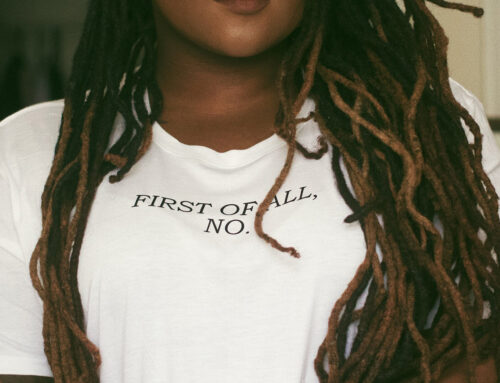
Discourses are the lenses we look through.
We use the lens to determine what’s in the frame vs out, what’s foreground, and what isn’t. Some things are in focus while others are fuzzy. In this way, discourses shape the way we see the world and how we interact with it. In short, a discourse is a worldview in action*.
Discourses impact our thoughts, feelings, relationships and behaviors in various ways. Consider how you might be encouraged to act if you were a woman living in a culture where one prevalent and powerful discourse was that women can only be happy and fulfilled if they are married and have children.
- You might spend a considerable amount of time and energy making sure you meet that goal.
- You might worry that there’s something wrong with you that you haven’t met that goal yet.
- You might feel that you are deeply flawed if you are married with children and don’t feel terribly fulfilled.
- You might look down on other women who are not married or don’t have children and treat them as lesser status.
What do discourses have to do with burnout?
We’re operating in a culture where certain very dominant discourses are fueling widespread burnout. For instance:
- We have the idea that “productive” means you are actively working (professionally) or doing something that will “improve” you (learning a skill, exercising, etc.). All other time is deemed “unproductive.”
- We have the idea that a person’s value is measured by how “productive” they are.
This discourse has us scrutinizing ourselves to ruthlessly cull any “unproductive” time that could be repurposed to enhance our value as human beings. It has us buying into systems of organizing our time and activities to maximize “productive” time. It has us feeling terrible about ourselves if we spend an hour scrolling through social media, and it has us wanting to spend more and more time scrolling through social media to numb out because this is actually a highly stressful way to live.
Dominant discourses have us thinking this is “just how it is,” how it’s always been, and there’s no changing it. That’s the illusion of a successful discourse.
In reality, there have been other times when we defined people’s value differently, when we defined the worth of activities differently. There are other discourses, other lenses we can choose to look through that are wide enough for a bigger and more fulfilling picture.
In this blog, we’ll name and examine some of the discourses that contribute to burnout, and we’ll take a look through alternative lenses to find out what else they might allow us to see.
*Note: The idea that a discourse is a “worldview in action” is from Jill Freedman and Gene Combs at the Evanston Family Therapy Center. I am grateful to both of them for this simple and effective definition of an otherwise heady concept.
Share this article

Kathryn Stinson
I help passionate people identify and dismantle the cultural drivers of burnout, so they can serve their big visions without burning out. Find information and strategies for dealing with burnout here, or reach out to work with me.
Subscribe
Each month I take a deep dive into one aspect of resisting burnout.
Monthly Deep Dive Letters name cultural dynamics that generate burnout and open doors to imagining how we might do things differently. For examples of what I write about, take a look at the blog.
No productivity tips, and no motivational pep-talks. Just in depth, thoughtful content to support you in resisting burnout culture. You’ll also be notified of new events and programs.





